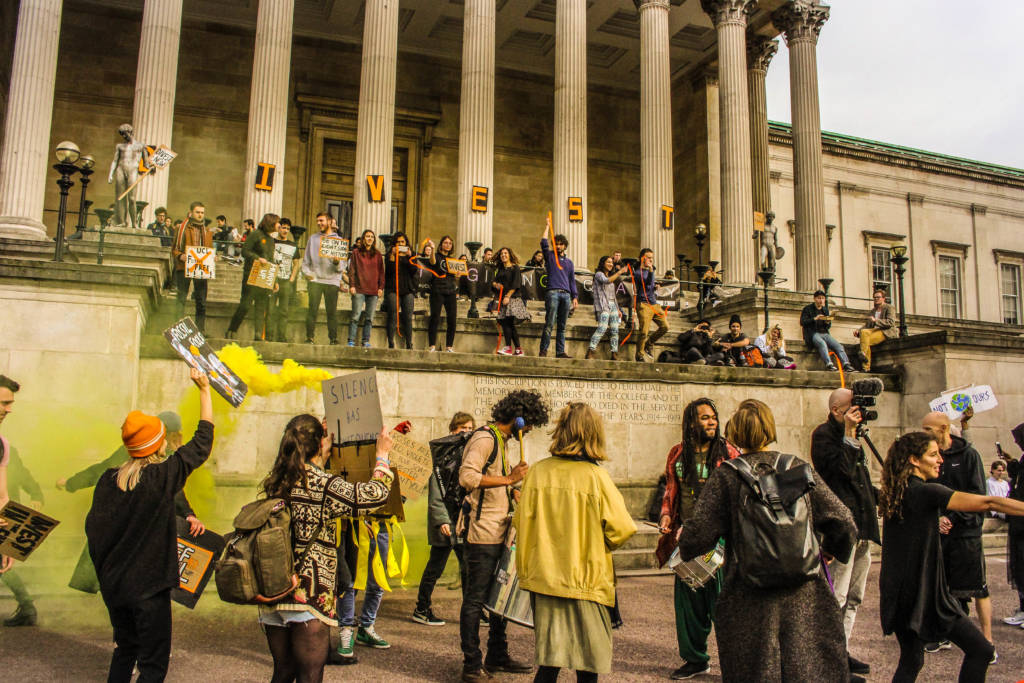As we watch yet another year of record-breaking temperatures and climate crises unfold, it is high time we made universities practice what they preach: for a good reputation, they must stop investing in the fossil fuel industry – financially, socially, and politically.
The global fossil fuel divestment movement has grown from this idea. Almost 700 institutions representing almost $5.5 trillion have removed their investments from fossil fuels, including the heirs to the Rockefeller oil fortune, the Church of England, numerous cities, and academic institutions worldwide. Notably, over a quarter of UK universities have divested.
If UCL’s research aims to improve our futures, why invest in wrecking it?
By investing in these companies, we are complicit in their exploitation and corruption. We see the fossil fuel industry routinely wreck the livelihoods of vulnerable people that stand in the way of profit – from toxic dumping in the Ecuadorian Amazon to overseeing a human rights tragedy in the Niger Delta to financing military police that brutally torture and murder civilians in West Papua.
We also see these companies use their financial might to protect their interests. There are few political processes from which an oil lobby is excluded – whether overpowering international negotiations on climate change, lobbying to subvert actions they claim to support, or paying their way into the heart of domestic politics, from Nigeria to the USA.
These companies make legendary profits but fail to pay the staggering costs incurred to people and the planet.

University College London invests over £12.2 million in the fossil fuel industry, including oil giants BP, Shell, and Total.
Oil is far from absent at UCL; the Chair of Council was previously chief economist at Shell and a member of BP’s board from 2001 to 2011.
Many students are shocked to hear about UCL’s investments; masters student Mariam Salah recalls how she previously thought the University was a “progressive” institution. Founded almost two-hundred years ago, it was the first UK university open to women, all religions, and all classes. It is now a leading research institution in fields that consistently implicate the fossil fuel industry, including climate science, human rights, and global health.
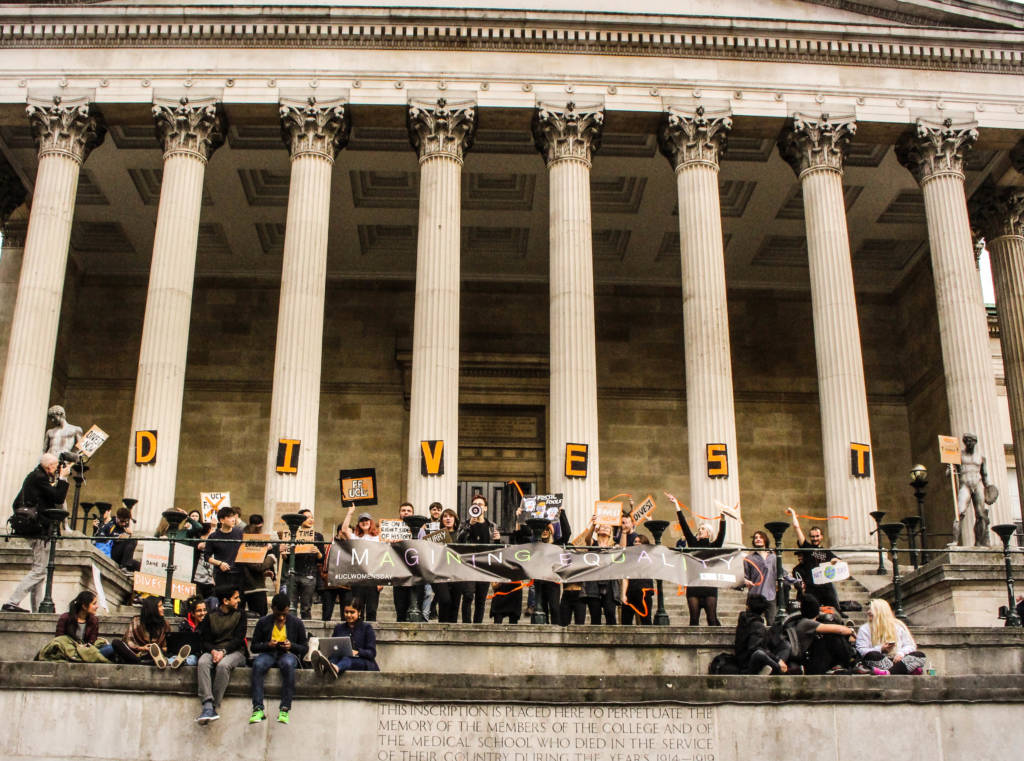
With divestment commitments from SOAS, Queen Mary’s, LSE, and KCL, UCL’s branding as ‘London’s Global University’ is quickly turning into ‘London’s Global Warming University’.
The divestment campaign at UCL has been escalating action daily following KCL’s full divestment earlier this month. UCL students have smeared ketchup and marmite onto UCL monuments showing the oil-tainted ‘blood on their hands’, chalked community opinions onto the iconic ‘Portico’, made hundreds of calls and emails to UCL management as part of a communications blockade, and gathered the student community in a solidarity flashmob of music and dance in the main UCL Quad.
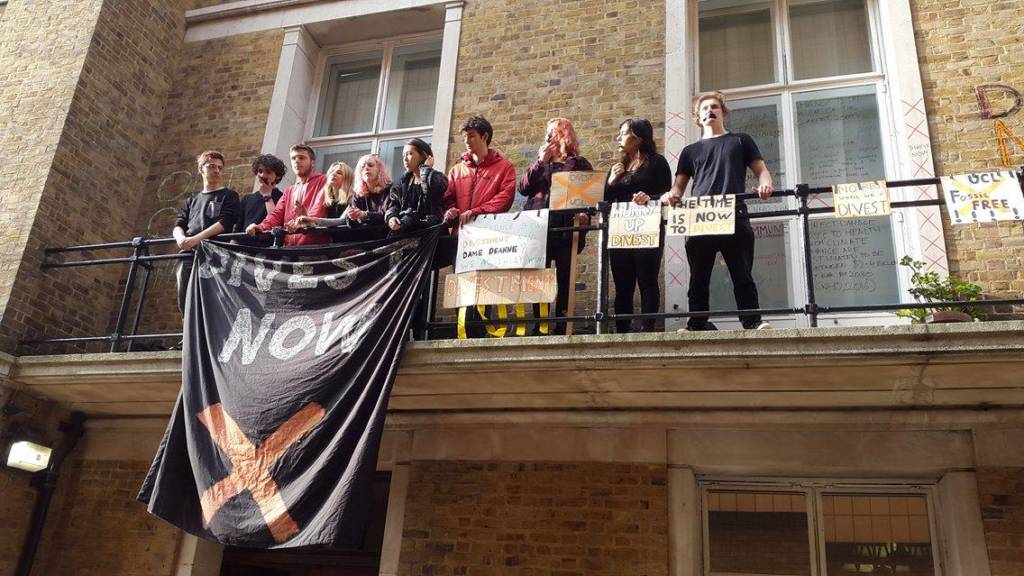
On Thursday afternoon a dozen activist students made their way up a university ladder onto the UCL Provost’s balcony to map out the chasm between the University’s academic community on the one hand and management’s investment decisions on the other – written, scrawled, and drawn across his second story window.
The students then occupied the space for 24 hours before writing their messages onto the Main Quad and emblematically delivering ‘oil’-covered flowers to the Provost’s door.
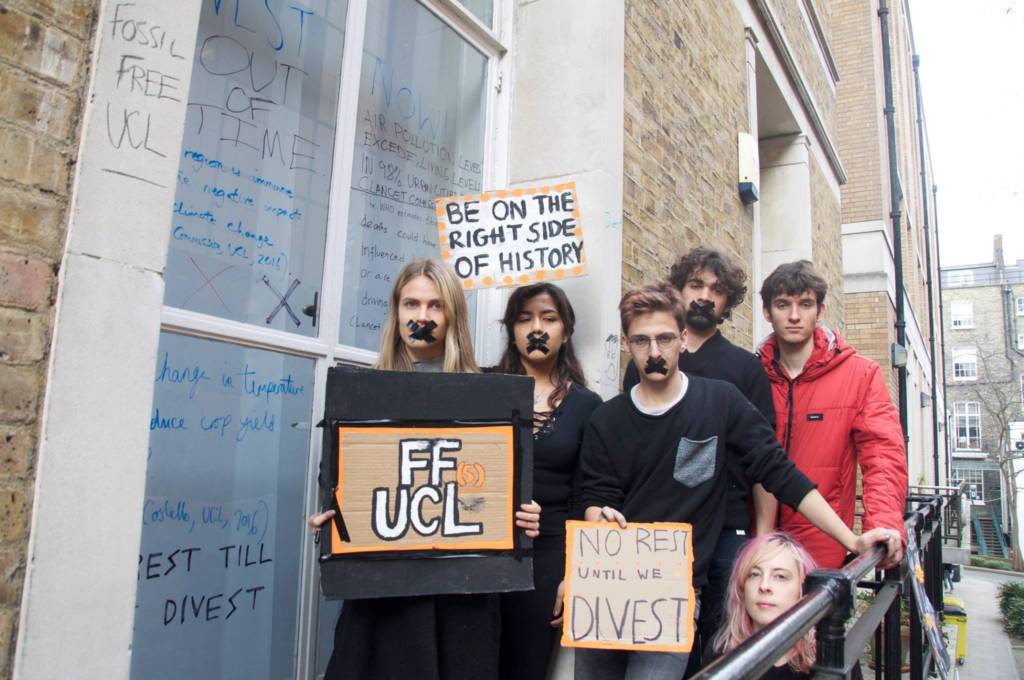
On one side of the window were quotes from the Provost himself; on the other side, students referenced climate research associated with UCL. A stark juxtaposition was revealed: “I run UCL like a monopoly board”, read the left-hand panel. The right-hand window-panes bore a quote from the Lancet Countdown based at UCL: “the response to climate change could be ‘the greatest global health opportunity of the 21st century.”
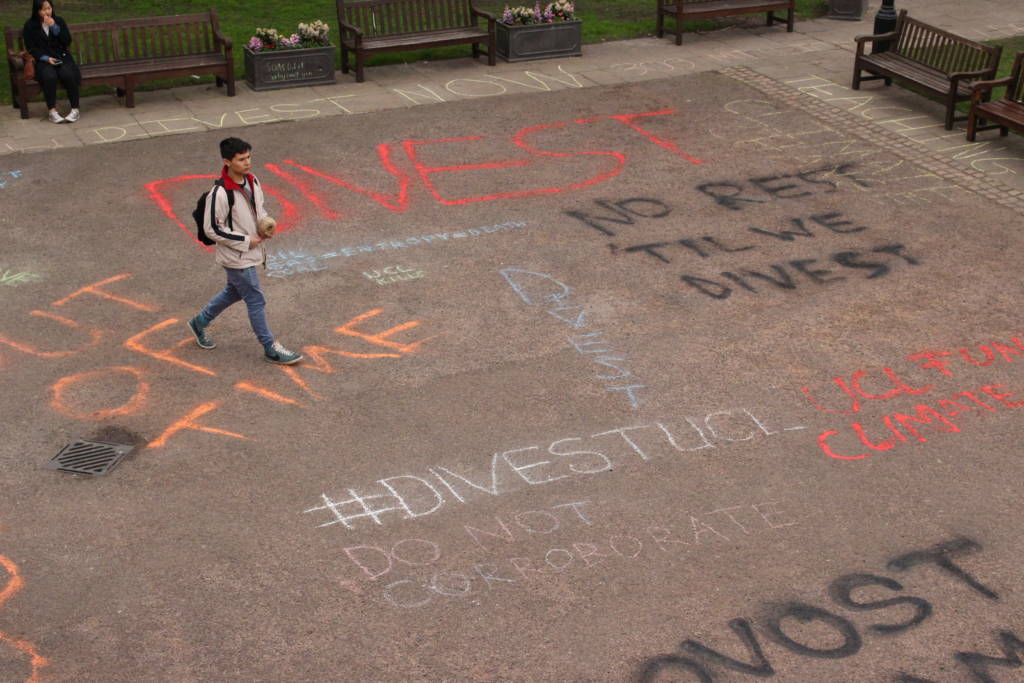 After four years of a loud campaign, campaigners’ lips were taped over in a black cross, answering the university’s determination to dismiss and defer their agenda as they waded through every possible diplomatic channel and demand by management; they were silenced and ignored. Just the day before, UCL deleted students’ public feedback online that referred to the University’s dirty investments.
After four years of a loud campaign, campaigners’ lips were taped over in a black cross, answering the university’s determination to dismiss and defer their agenda as they waded through every possible diplomatic channel and demand by management; they were silenced and ignored. Just the day before, UCL deleted students’ public feedback online that referred to the University’s dirty investments.
The campaign has garnered more support than any other in UCL history, with an online petition of over 3300 signatures, wide support from the UCL Academic Board, and official support from the Student Union.
It’s time for UCL to divest.
Sign Fossil Free UCL’s petition here and follow their activities via their Facebook.
